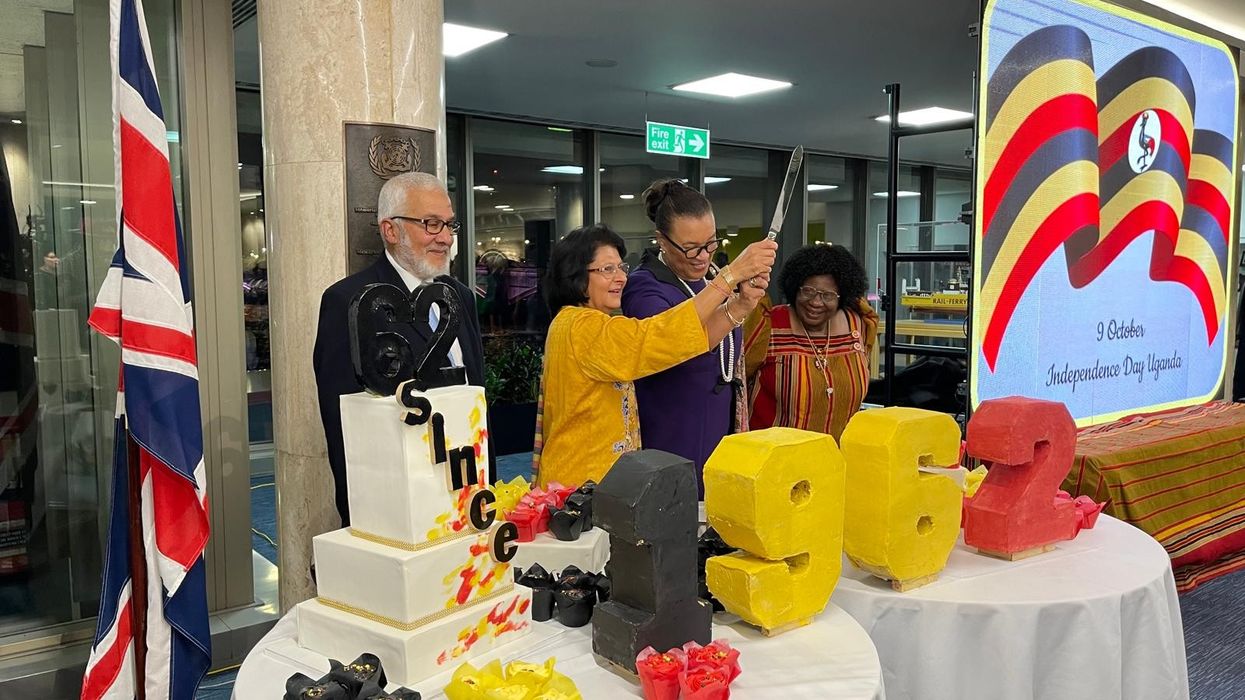SENIOR officials, diplomats and members of the diaspora were among the 500 guests who attended 62nd independence day celebrations last Wednesday (9) hosted by the Uganda High Commission in London.
The event at the at the International Maritime Organisation in London highlighted Uganda’s achievements under president Yoweri Museveni.
Among those who took part were officials from the UK government, members of the Ugandan diaspora, friends of Uganda, and the diplomatic corps.
Madhvani addresses guestsIn her address, Uganda’s High Commissioner to the UK and ambassador to Ireland, Nimisha J Madhvani, reflected on Uganda’s progress since gaining independence in 1962. She extended warm wishes for the festive season, including Navratri, sharing the message of overcoming evil for the upcoming Diwali, the Hindu festival of lights.
“As we celebrate today, let us do so with pride in our hearts, knowing that we are part of a great nation, with a bright future. Let us honour the sacrifices of our ancestors by continuing to work tirelessly for a Uganda that is free, prosperous, and united,” Madhvani said.
She highlighted the advancements Uganda has made in various sectors, including infrastructure, education, healthcare, and agriculture.
Uganda has been recognised as the best investment destination in Africa, with GDP growth reaching 6.7 per cent in the last quarter and annual growth at six per cent, the high commissioner said. Uganda aims to achieve a $5 billion (£3.8bn) economy by 2040, focusing on commercial agriculture, tourism, and technological innovation.
Cultural performancesMadhvani also encouraged attendees to consider Uganda not only as a tourist destination but also as a hub for potential investments in the future.
Commonwealth SecretaryGeneral, Baroness Patricia Scotland KC, also attended the event. “I wish all Ugandans a Happy Independence Day as we continue our shared journey towards unity, peace, and prosperity,” she said.
Other high-profile guests included Jaffer Kapasi OBE, Oliver Scheidt, representative of Lord Dolar Popat, the UK Trade Envoy to Uganda, DRC, and Rwanda, the CEO of Citibank and team, officials from Standard Chartered Bank, Marshall of the Diplomatic Corps Ambassador Alistair Harrison and Dean of the Diplomats Ambassador Ivan Romero. Guests enjoyed cultural performances from Bantu Arts, showcasing Uganda’s heritage and artistry.




